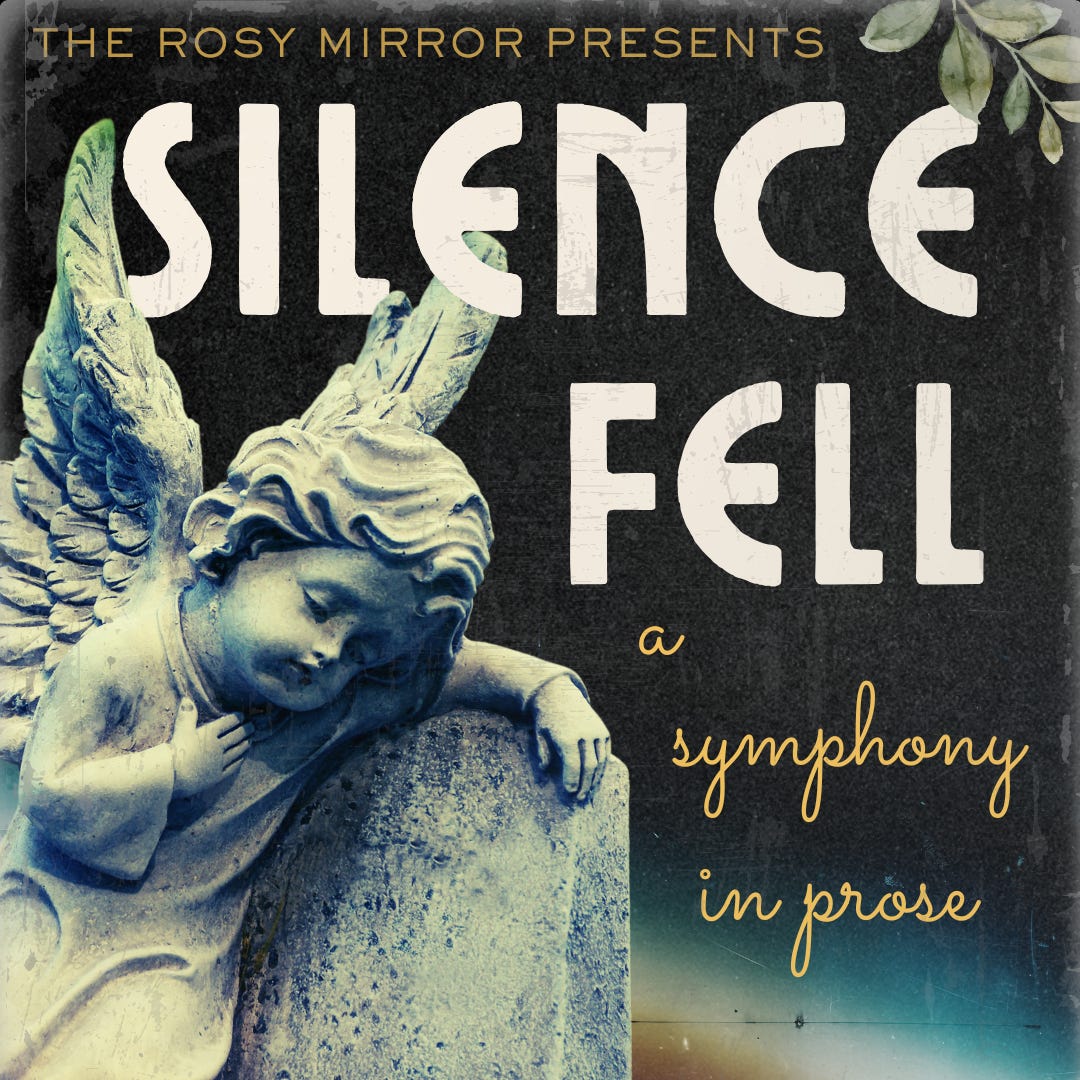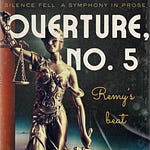The Rosy Mirror publishes new episodes of epic paranoir serial audio fiction every Tuesday at 3. Paranoir is noir the way a paralegal is a lawyer—i.e., not really, but they sort of look the same.
So expect a universe of elegant corruption and classy decay: a gleeful festival of everything awful, in gorgeous costumes under dramatic lighting with lavish set designs. This, the new noir, is all about atmosphere.
Now playing: a symphony in prose, Silence Fell, the dark and alluring saga of Cadence Marie Cheerslaughter. Synopsis below.
Time and place: the City of Los Angeles, first quarter of the 21st century.
Something stinks in the city streets, even worse than the homeless. Wealthy developers make and remake the luxury face of Hollywood, while downtown is overwhelmed with the unhoused. LAPD is hiring all applicants, no questions asked, barely maintaining order.
An interconnected network of tarps, boards, and other makeshift shelters has completely overtaken Skid Row, and the cops have largely abandoned the district. Chaos reigns within. And yet something new, a movement perhaps, is struggling to be born. Deep inside Tent City, in the heart of Skid Row, the homeless are organizing.
At first, the Mayor insisted the Movement was a myth. Then he tried to say it was just a bunch of thugs. Still he can't acknowledge that a genuine new power has come onto the scene. Their leader, identity unknown, hides out in the warren of tents, emerging to heist medicine and food one truckload at a time. He proclaims the start of a radical new order in LA. As the freshly-dubbed Robin Hood says in a viral clip, fist up, mask on: "for the people, for the culture, for the Movement."
But Cadence, twenty-one, has no part in all that. Daughter of Will Cheerslaughter, a powerful developer, she's insulated from chaos in her father's fortress house. From the Hollywood Hills, she looks out her window at the skyline in the distance. She's got demons of her own, quite literal—and they're in the bedroom with her.
Besides her hundreds of stuffed animals, her only friend is Max. The boy she met in the psych ward. Sneaking around only makes things hotter, but something's wrong with Cadence that the doctors don't understand. She says she sees the future, "everything that's going to happen," and her predictions keep coming true. Still the doctors don't believe her when she says that she keeps hearing someone whisper from the shadows.
Max is haunted by the ghost of his mother, the woman he couldn't save. But it's society that has the problem, and Max set out to prove it. Failing, he despaired, of his mission and his life. There, at rock bottom, he met a girl named Cadence. Suddenly he had a reason. He'd been nearly homeless, but now he was determined to make something of himself, if only for her sake. Of course he found his way into the Movement.
Cheerslaughter's syndicate stands against the Movement. He and the mayor claim to speak for respectable people; Robin Hood speaks for the poor. As events unfold, it becomes clear: the truth of the matter is more complicated. Everyone shows their true face eventually.
At all points, personal and political, the pressure is increasing; fissures appear in the foundations of things. An unknown order guides events, a destiny. Call it supernatural if you will. But science has yet to study fate, or suss out the laws of history. Whatever sickness of the soul is eating at Los Angeles is eating at Cadence too.
For these are the sunset years. When entropy rules and empires decay. When symbols lose their meaning, and unions bear no offspring. Tyrants rise and Death flies over the land, for although the farms are fruitful—although we are still rich—the edges are beginning to fray. The signs of decay are everywhere. They cannot be ignored. Soon will come the night, a dark age, long and cold but with sunrise on the other side. Let's cling together tight, and hope we live to see it.














